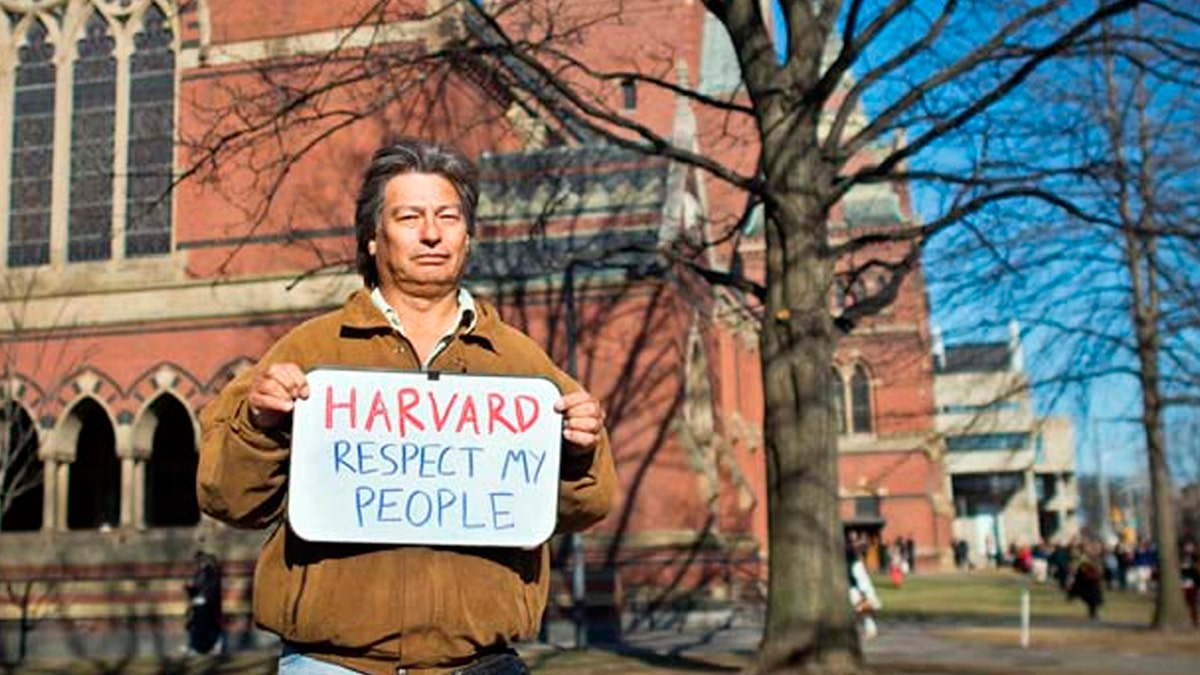
Adrián Obregón, a Guaraní farmer and community leader from Argentina, met with students, workers, and administrators at Harvard's campus in April 2014 about the impacts of the Harvard endowment fund’s investments on his community. (Responsible Investment at Harvard Coalition)
Harvard’s billion-dollar investment arm has come under fire for “land conflicts” and “environmental destruction” in developing countries spanning the globe, a damning new report has concluded.
The Ivy League school’s Harvard Management Company (HMC) has spent around $1 billion accumulating more than 2 million acres of farmland around the world.
The diverse portfolio accrued by the group has included vineyards in California, dairy farms in New Zealand and operations producing cotton, soybeans and sugar cane in countries including Brazil, South Africa, Australia, Russia and Ukraine.
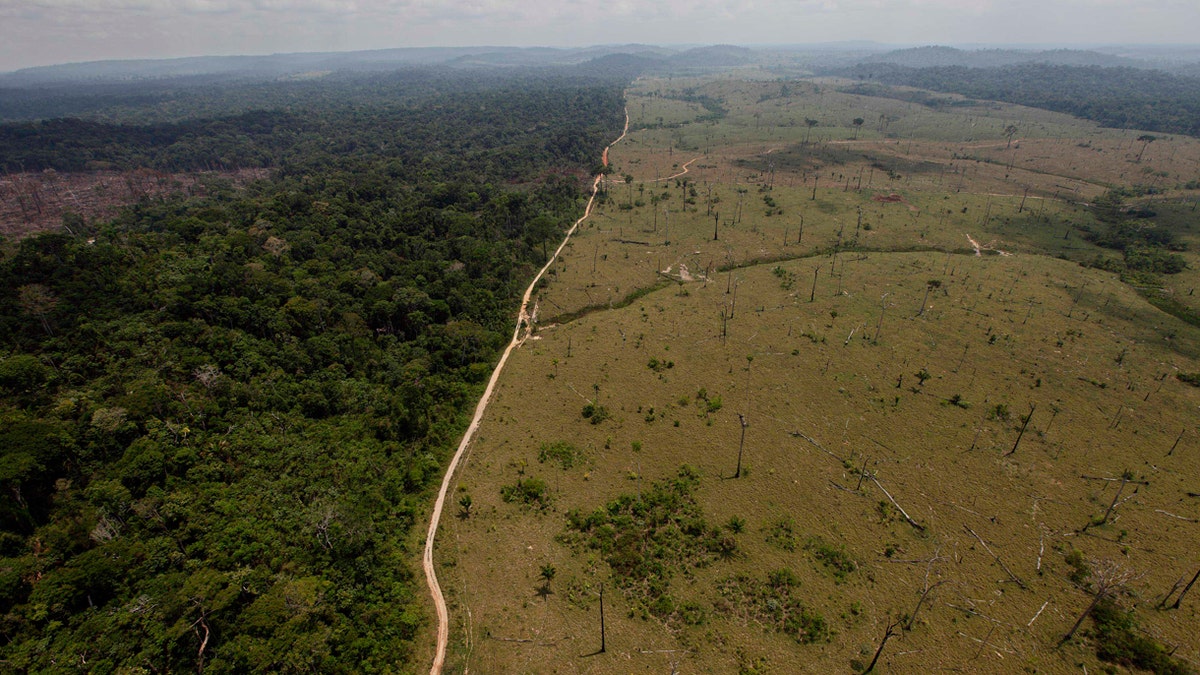
A deforested area near Novo Progresso in Brazil's northern state of Para from 2009. (AP Photo/Andre Penner)
But the report, released by the activist groups GRAIN, based in Barcelona, and Sao Paulo-based Network for Social Justice and Human rights, charges that HMC's farmland acquisitions “were undertaken without proper due diligence and have contributed to the displacement and harassment of traditional communities, environmental destruction and conflicts over water.”
The report claims that the aggressive acquisitions were “particularly dire in Brazil,” where the fund has bought more than 700,000 acres of land in the Cerrado region, which contains 5 percent of the planet’s biodiversity.
One of Harvard University’s massive industrial soy plantations destroyed a small Brazilian village – once known for lush savannahs and abundant waters – now facing new health problems from pesticides being aerially sprayed on the farms and blown into homes with polluted water sources drying up from deforestation and irrigation.
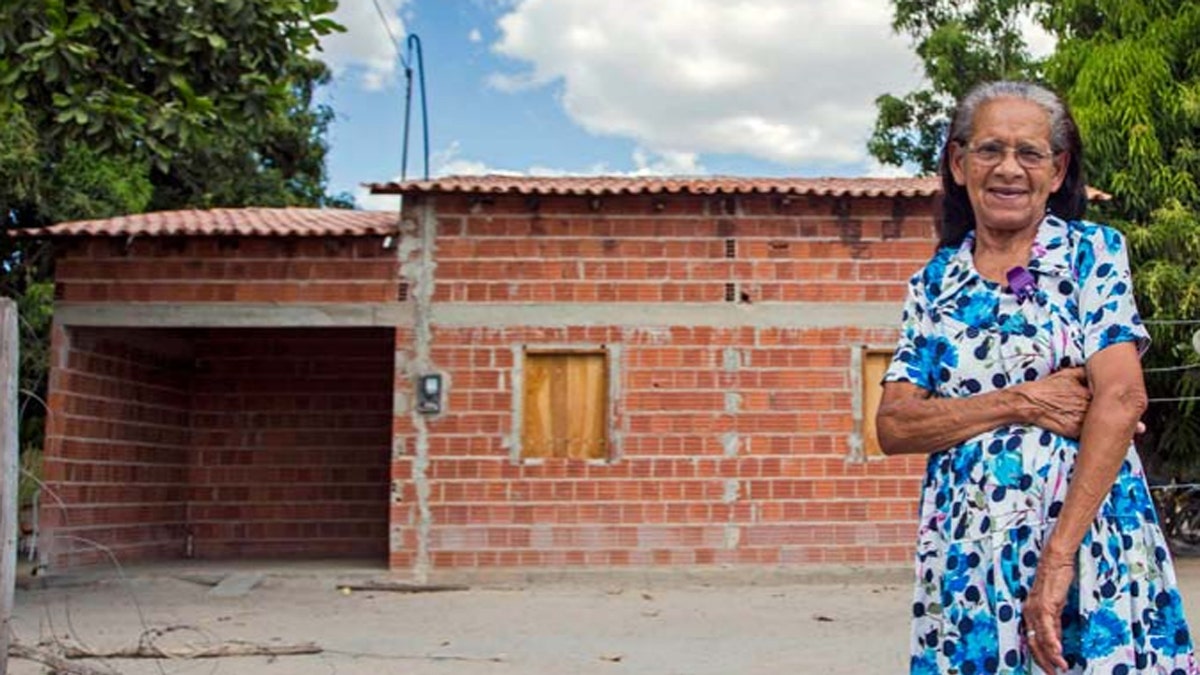
Palmerina Ferreira Lima outside her home in the village of Melancias, Piauí, Brazil. (Rosilene Miliotti / FASE)
HARVARD NEVER CONSIDERED ELIZABETH WARREN AS NATIVE AMERICAN IN HIRING PROCESS, REPORT SAYS
“We are here, afraid of dying of thirst. If only these projects would stop, water would come back. But they don’t stop. No,” said Palmerina Ferreira Lima, a 77-year-old woman from the village of Melancias. “They will probably stop when the river is all dried up.”
Harvard University’s investments have been the subject of controversy before – from fossil fuels, private prisons and companies connected to Israel – but this time it’s from little-known farmland investments that span the globe, which the groups say should be a “cautionary tale” to other institutions.
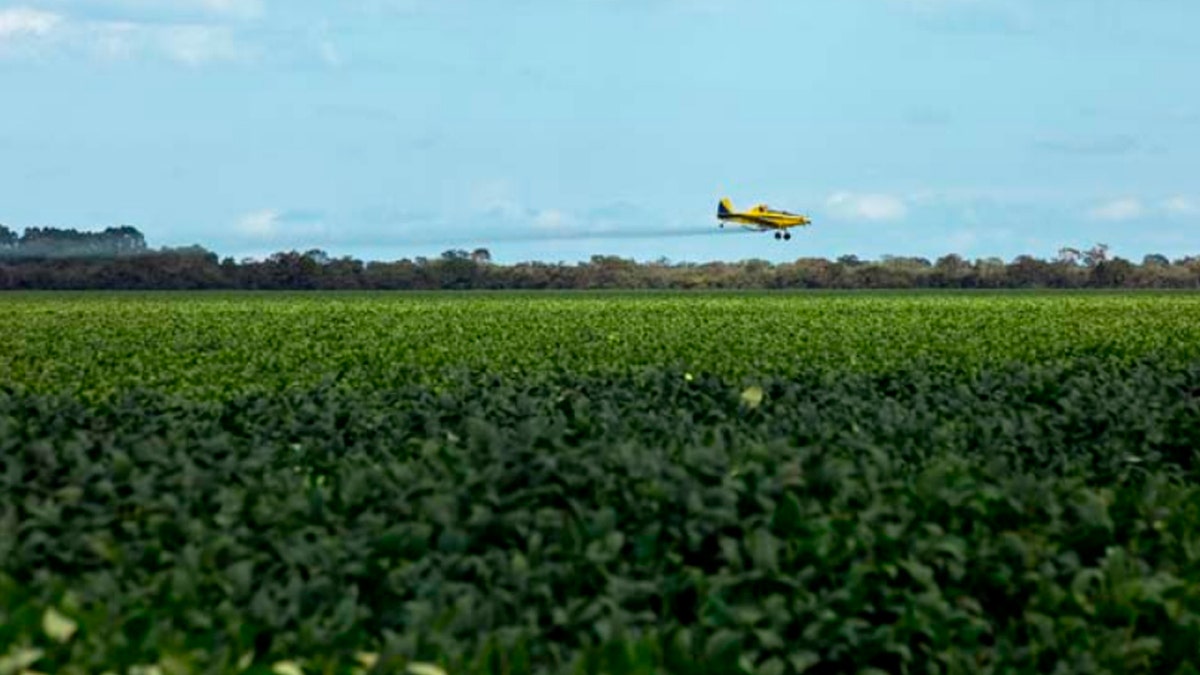
A crop plane aerial spraying pesticides on a soybean plantation in Piauí, Brazil. (José Cícero Silva/Agência Pública)
“The risks Harvard’s fund managers took have not paid off financially for the university and have instead left it with a legacy of land and water conflicts to deal with,” the activists write in the report, which included a year-long investigation of tax returns and local property records, as well as on-the-ground interviews.
HARVARD UNIVERSITY CLASS FOCUSES ON 'OMNIPRESENT' FECES IN FRENCH LITERATURE
An overseer of the fund, Kat Taylor, resigned in protest in May, calling HMC’s endowment “opaque funds” and saying the Ivy League school failed to lead compared to its peers because of “land purchases that may not respect indigenous rights, water holdings that threaten the human right to water, and investments at odds with the safety of children and first responders.”
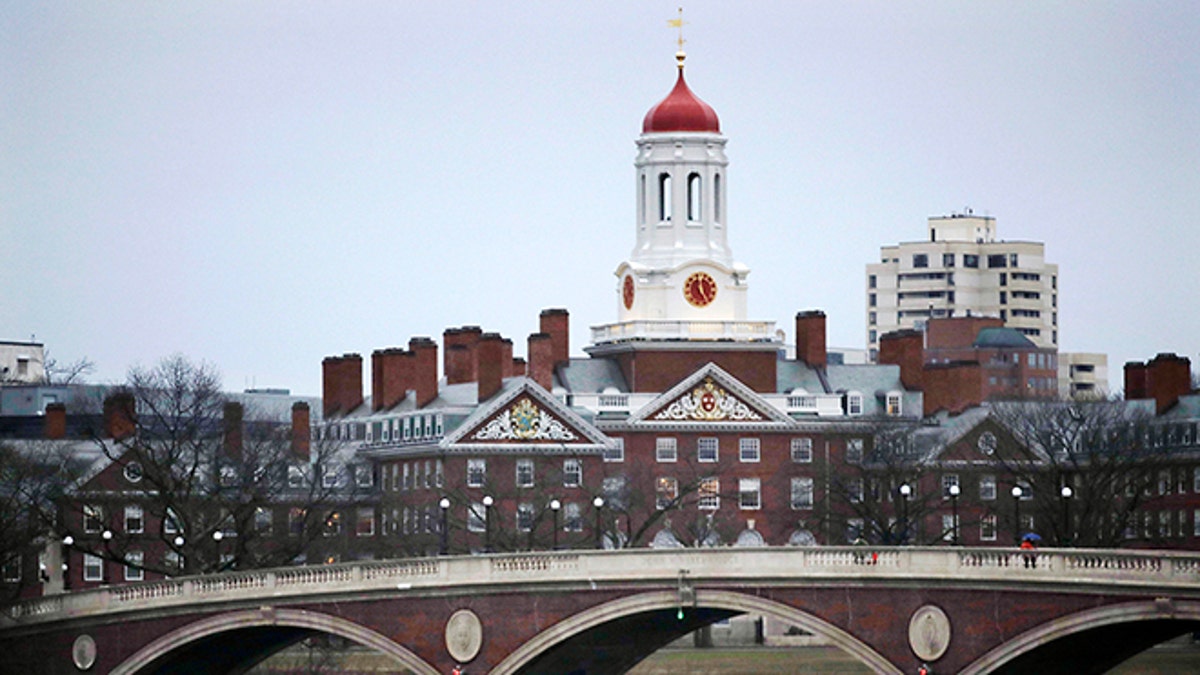
Activist groups released a report critical of Harvard University's billion-dollar investments in farmland around the world. (AP)
The report calls on Harvard’s endowment fund to cease all its investments in farmlands, take immediate action to resolve all land conflicts and adequately compensate communities for damages.
HMC CEO Narv Navekar, in a letter one year ago, wrote that the university is moving toward a generalist investment model, pointing out that some of the natural resource programs “have significant challenges” and will be changed incrementally in a multi-year process.
HMC spokesman, Patrick McKiernan, told Fox News that Harvard is in the middle of repositioning their investment portfolio with a focus on environmental, social and governance issues.
“We have sold a number of assets and are considering divestment from others,” he said. “The team has also instituted a more proactive approach to working with managers of new and remaining assets — a partnership that provides more oversight and ensures that we can leave the land and community better than when we first invested.”

